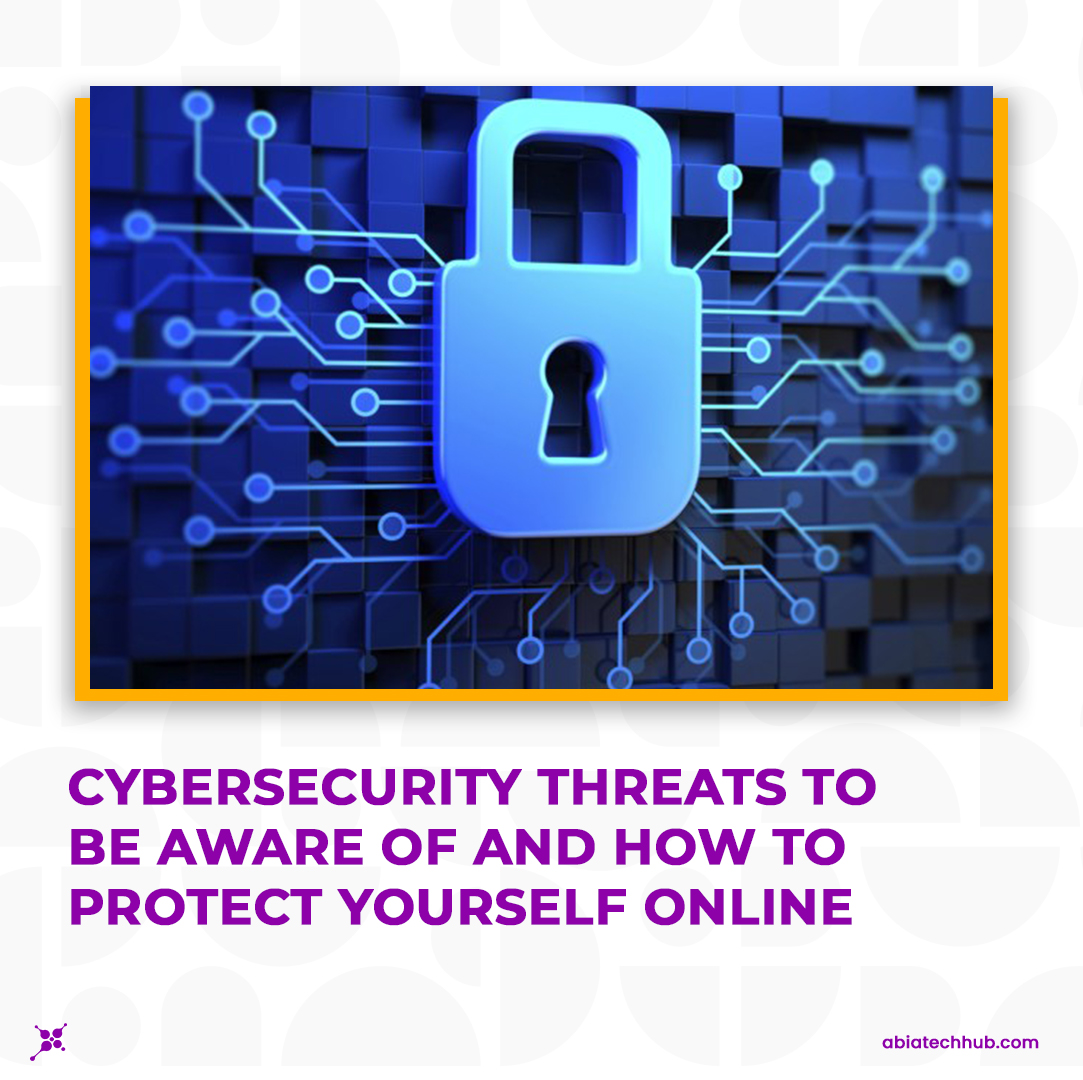Cybersecurity threats to be aware of and how to protect yourself online
In today's digital age, cybersecurity is becoming an increasingly important concern for individuals and businesses alike. With cybercriminals constantly devising new tactics to exploit vulnerabilities, it's important to stay informed about the threats that exist and how to protect yourself online. In this blog post, we'll take a look at some of the most common cybersecurity threats and provide tips on how to stay safe while using the internet.
- Phishing Scams
Phishing scams involve criminals sending emails or messages that appear to be from a legitimate source, such as a bank or government agency, in an attempt to trick you into revealing sensitive information, such as your login credentials or credit card details. To protect yourself from phishing scams, never click on links in unsolicited emails or messages, and always double-check the URL of any website before entering your login credentials.
- Malware
Malware is a type of software that is designed to harm or infiltrate a computer system. This can include viruses, Trojan horses, and other malicious software that can steal sensitive information, cause system crashes, or even take control of your computer. To protect yourself from malware, always keep your operating system and antivirus software up to date, and be cautious when downloading files or attachments from unfamiliar sources.
- Identity Theft
Identity theft occurs when someone uses your personal information, such as your name, address, or social security number, to commit fraud or other criminal activities. To protect yourself from identity theft, always keep your personal information secure, use strong passwords for all your online accounts, and be cautious when sharing personal information online.
- Password Attacks
Password attacks are a common tactic used by cybercriminals to gain access to sensitive information. This can include guessing passwords, stealing passwords through phishing scams or malware, or using brute force attacks to crack passwords. To protect yourself from password attacks, use strong, complex passwords, never reuse passwords across multiple accounts, and use two-factor authentication wherever possible.
- Social Engineering
Social engineering is a tactic used by cybercriminals to manipulate people into revealing sensitive information or performing actions that can compromise their security. This can include pretending to be someone in authority, such as a bank employee or government official, and requesting sensitive information or access to your computer. To protect yourself from social engineering attacks, always be skeptical of unsolicited requests for information or access, and never give out sensitive information or access to your computer without verifying the legitimacy of the request.
In conclusion, cybersecurity threats are constantly evolving, and it's important to stay informed and take steps to protect yourself online. By following the tips outlined in this blog post, you can reduce your risk of falling victim to cybercrime and ensure that your online activities remain secure. Remember to always be cautious when sharing personal information online, use strong passwords and two-factor authentication wherever possible, and stay vigilant against phishing scams, malware, and other common cybersecurity threats.




